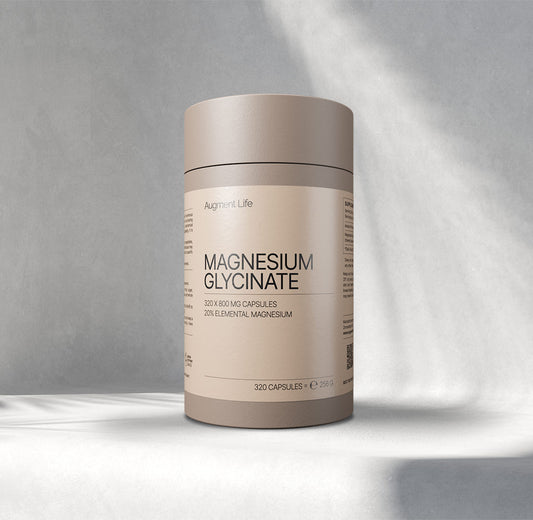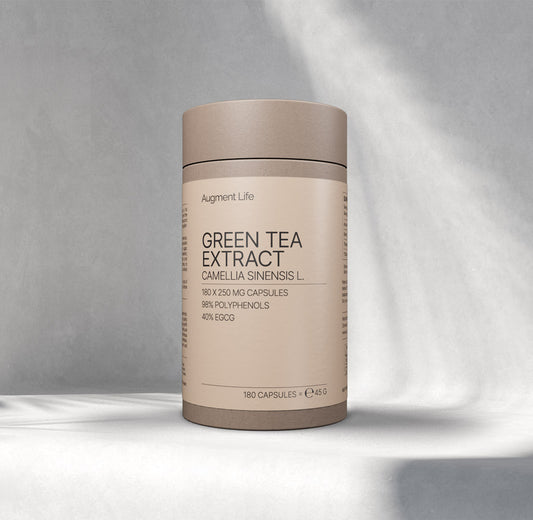Ginseng, a revered herb in traditional medicine for centuries, has gained popularity in the West for its potential health benefits. But with so many varieties and conflicting information, a common question arises: How much ginseng should I take?
This article explores the world of ginseng dosage, unpacking factors to consider and referencing scientific studies for guidance.
What are Ginsenosides?
Think of ginsenosides as the active ingredients in ginseng. Different ginseng varieties boast varying levels and types of ginsenosides. Here's the key takeaway:
- Ginseng Variety Matters: Panax ginseng (Korean ginseng) generally has higher ginsenoside content compared to American ginseng.1-2 Siberian ginseng (Eleutherococcus senticosus) contains different types of ginsenosides altogether.3
- Ginsenoside Concentration Matters: Extracts are typically more concentrated in ginsenosides than raw root powder. Therefore, a lower dosage of extract might be sufficient compared to raw powder.
- Standardized Extracts Offer Consistency: When choosing an extract, look for "standardized" options. These guarantee a consistent level of ginsenosides, simplifying dosage determination.
Recommended Dosages of Ginseng
- Panax ginseng: Studies suggest a daily dosage of 200-400 mg of extract or 1-2 grams of raw root powder might be effective.4
- American ginseng: Studies on this variety often use 200-400 mg of extract daily. 5
- Siberian Ginseng: Research observed 800-1,200 mg daily for up to 10 days.6
Age, weight, and overall health can influence how your body reacts to ginseng. Higher doses might be needed for acute conditions, such as boosting energy or mental performance, while lower doses may suffice for general wellness and maintenance.
Ginseng - Side Effects
Ginseng is generally considered safe when taken at appropriate doses. However, some potential side effects include:
- headaches,
- upset stomach,
- insomnia.
Pregnant or breastfeeding women, individuals with certain medical conditions, and those taking medications should consult a doctor before considering ginseng.
Final Words
Ginseng can be a valuable addition to your health routine when used at the correct dosage. Whether you opt for Asian, American, or Siberian ginseng, knowing the recommended dosages and taking necessary precautions will help you optimize its benefits.
Always consult a healthcare professional to customize the dosage to your unique needs and health conditions. By doing so, you can safely experience the many advantages that ginseng provides.
For a deeper dive into ginseng, visit our article:
References:
- Asian Ginseng. (n.d.). NCCIH. https://www.nccih.nih.gov/health/asian-ginseng.
- Guerrini, G. (2024, April 3). Panax quinquefolius (American ginseng). Examine. https://examine.com/supplements/american-ginseng-panax-quinquefolius/.
- Patel, K. (2022, September 28). Eleuthero. Examine. https://examine.com/supplements/eleuthero/.
- Ossoukhova, A., Owen, L., Savage, K., Meyer, M., Ibarra, A., Roller, M., Pipingas, A., Wesnes, K., & Scholey, A. (2015). Improved working memory performance following administration of a single dose of American ginseng (Panax quinquefolius L.) to healthy middle-age adults. Human psychopharmacology, 30(2), 108–122. https://doi.org/10.1002/hup.2463.
- Wee, J. J., Park, K. M., & Chung, A. (2011b). Biological activities of ginseng and its application to human health. Herbal Medicine - NCBI Bookshelf. https://www.ncbi.nlm.nih.gov/books/NBK92776/.
- Cambria, C., Sabir, S., & Shorter, I. C. (2023, May 1). Ginseng. StatPearls - NCBI Bookshelf. https://www.ncbi.nlm.nih.gov/books/NBK538198/.








